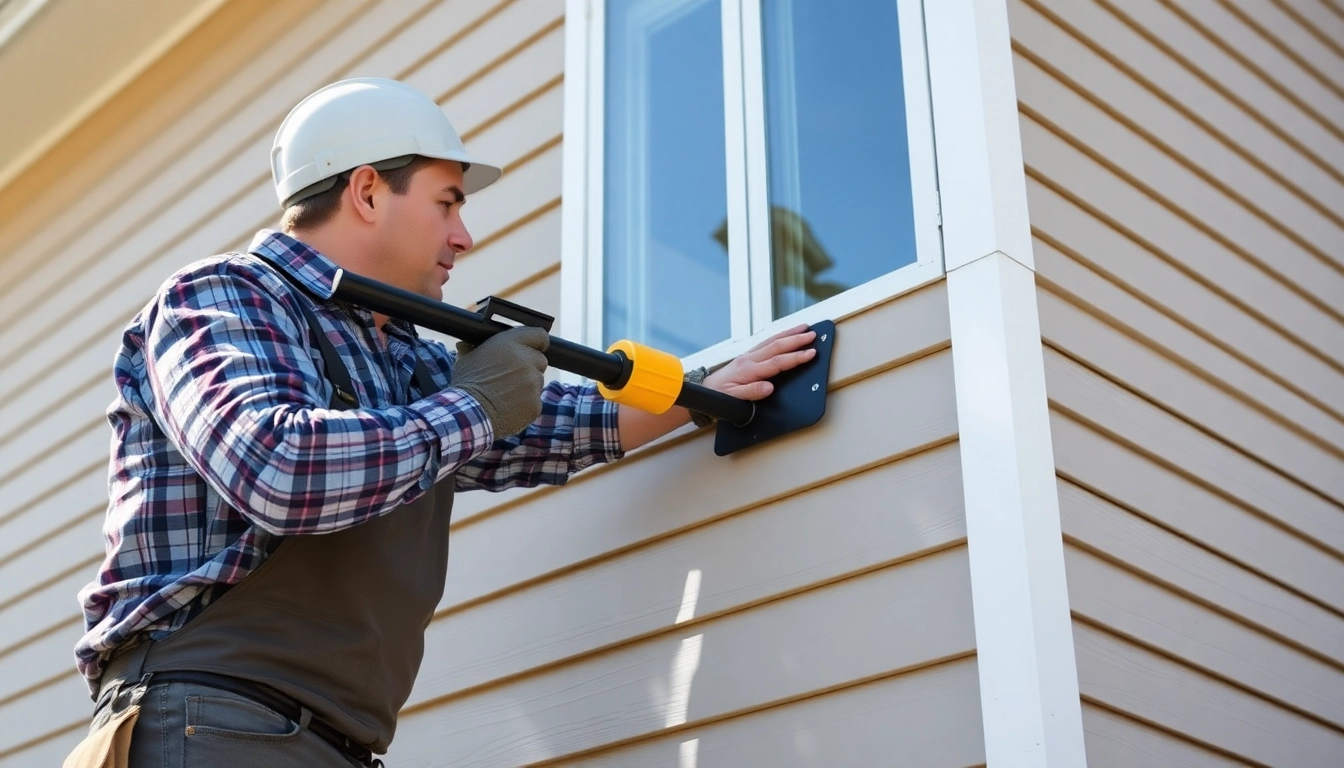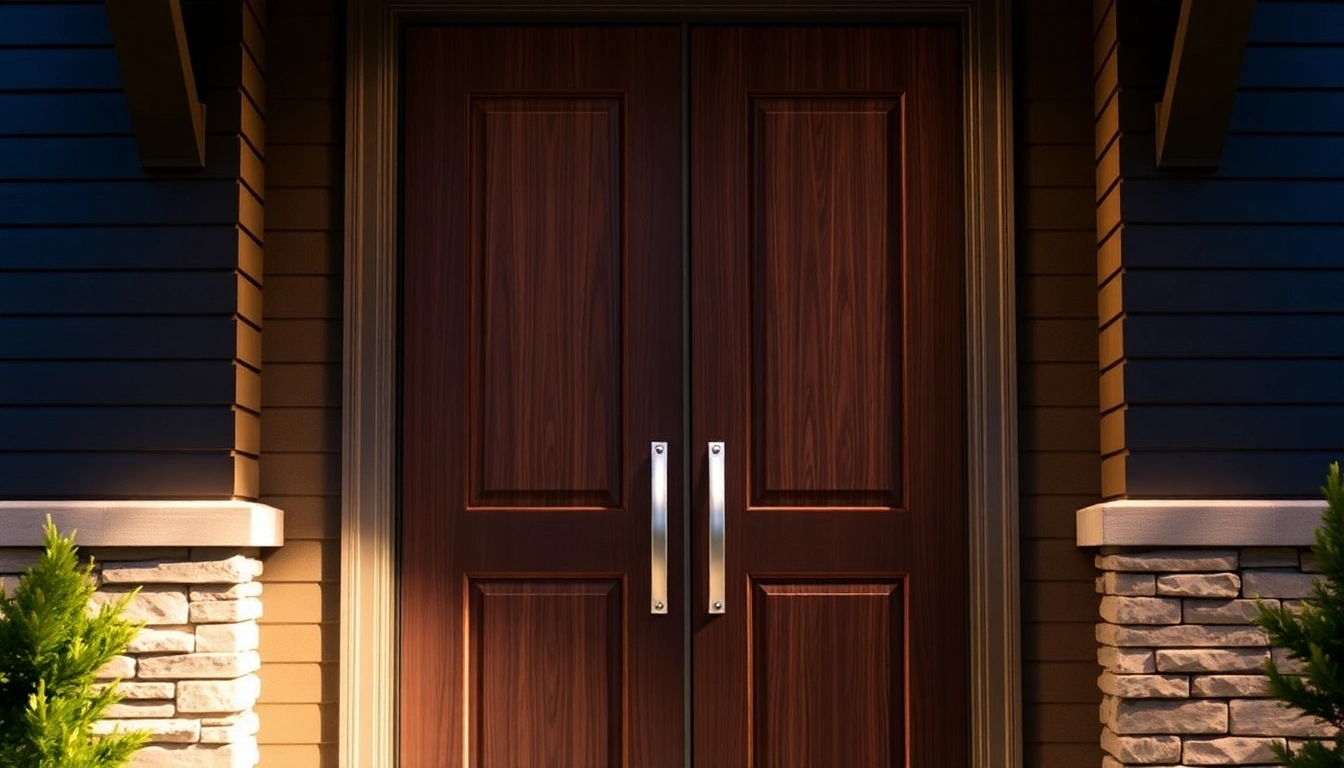Understanding the Role of a Siding Contractor
When it comes to improving your home’s exterior, choosing the right siding is crucial for both aesthetic appeal and long-term durability. However, selecting the perfect siding material is only part of the puzzle. The expertise and craftsmanship of a professional siding contractor play a pivotal role in ensuring that your investment yields lasting results. A siding contractor is a specialized professional responsible for installing, repairing, and maintaining various types of siding, contributing significantly to your home’s curb appeal and structural integrity. This comprehensive guide delves into what a siding contractor does, the characteristics of different siding materials, how to choose the right professional for your project, and the factors influencing costs and quality.
What Does a Siding Contractor Do?
Scope of Work
A siding contractor undertakes a wide array of services focused on exterior wall coverings. Their core responsibilities include evaluating the existing condition of siding, recommending suitable materials based on client preferences and budget, and executing the installation or repair process with precision. Contractors ensure that your siding is properly fitted, sealed, and weather-resistant, preventing issues like moisture intrusion, pest infiltration, and energy loss. They also handle necessary preparatory work such as removing old siding, repairing underlying structures, and installing insulation if required.
Inspection and Assessment
An essential first step for any siding project involves detailed inspection. A good siding contractor assesses the current state of your home’s exterior—checking for damage, rot, mold, or structural weaknesses. Accurate assessment helps determine whether repair, replacement, or a combination of both is needed. It also aids in selecting materials that complement your home’s architecture and meet local building codes.
Installation and Repair
Post evaluation, the contractor manages the entire installation process, ensuring all steps adhere to industry standards. Quality craftsmanship includes proper surface preparation, precise fitting, and secure fastening. When repairing existing siding, the contractor identifies and addresses underlying issues, replacing damaged panels and ensuring the new work blends seamlessly with existing material.
Specialization and Certification
Many siding contractors specialize in specific materials or installation techniques. Certification from manufacturers or industry bodies such as James Hardie or CertainTeed affirms their expertise. Certifications often indicate adherence to highest standards, warranty backing, and ongoing training, which translate into superior work quality.
Types of Siding Materials Offered
Vinyl Siding
Vinyl siding is one of the most popular siding options due to its affordability, low maintenance, and wide range of color selections. It offers excellent resistance to weather, pests, and rot. Modern vinyl panels mimic the appearance of wood or other natural materials, making them versatile for various architectural styles.
James Hardie (Fiber Cement) Siding
Known for durability, James Hardie fiber cement siding is resistant to fire, pests, and extreme weather. It provides a premium look with options to mimic wood, stucco, or other finishes. Installation requires experience due to its weight and specific fastening techniques.
Cedar Siding
Cedar remains a classic choice for its aesthetic warmth, natural insulative properties, and biodegradability. However, it demands regular maintenance to prevent rot and insect damage, making skilled installation and ongoing care essential.
Metal Siding
Metal siding, including aluminum and steel, offers high durability, fire resistance, and modern appearance. It’s ideal for contemporary or industrial-style homes and performs well under harsh climate conditions.
Other Options
Additional materials include stucco, vinyl cedar shake, composite sidings, and other innovative options. A professional siding contractor guides homeowners in selecting the best material tailored to climate, aesthetic, and budget.
Benefits of Hiring a Qualified Siding Contractor
Expertise and Experience
Certified contractors bring a wealth of knowledge about installation techniques, material handling, and troubleshooting. Their expertise ensures your siding is installed correctly, maximizing durability and aesthetic appeal.
Quality Assurance and Warranty
Professional contractors often provide warranties on their workmanship, offering peace of mind that your investment is protected. They also guarantee adherence to manufacturer installation standards, which is critical for warranty validation.
Efficiency and Time Savings
Experienced siding contractors work efficiently, reducing project timelines and minimizing disruptions to your daily routine. Proper planning and execution also prevent costly mistakes and rework.
Compliance with Building Codes and Regulations
Contractors stay up-to-date and ensure all siding work complies with local codes and regulations, avoiding potential fines and legal issues.
Protection of Your Home
Installing siding involves working at heights and handling heavy materials. Qualified contractors follow strict safety procedures to protect homeowners, workers, and property.
Choosing the Right Siding Contractor for Your Home
Key Factors to Consider
- Experience and Track Record: Look for contractors with several years of service and positive reviews, especially projects similar to yours.
- Licensing and Certification: Verify licensing to meet state requirements and seek certifications from industry leaders for added credibility.
- Portfolio and References: Review past work images and speak directly with previous clients to assess satisfaction and workmanship.
- Insurance Coverage: Ensure the contractor has adequate liability and workers’ compensation insurance.
- Pricing and Contract Terms: Obtain detailed quotes and understand payment schedules, warranties, and service guarantees.
Questions to Ask During Consultation
- What materials do you recommend, and why?
- Can you provide references from past clients?
- What is the projected timeline for the project?
- Are your workers insured, and do you handle permits and inspections?
- What warranties do you offer on workmanship and materials?
Evaluating Quotes and Services
When reviewing estimates, prioritize transparency and scope clarity over cost alone. A comprehensive quote should include material costs, labor, permits, cleanup, and warranty details. Beware of significantly low bids, which may indicate substandard materials or rushed work. Always opt for reputable professionals with proven expertise to safeguard your investment.
Popular Siding Options and Installation Tips
Vinyl, James Hardie, Cedar, and Metal Siding
Each siding material offers unique advantages. Vinyl is budget-friendly and requires minimal maintenance, but may be less durable in extreme climates. James Hardie fiber cement provides exceptional durability and realistic aesthetic options, suitable for regions with harsh weather. Cedar offers natural beauty but needs regular upkeep. Metal siding is ideal for modern designs and resilient against fire and pests. Your choice should align with your aesthetic preferences, climate considerations, and maintenance willingness.
Preparing Your Home for Siding Installation
Proper preparation is key for a successful siding upgrade. This involves cleaning the existing surface, repairing any structural issues, removing old siding carefully, and cleaning the underlying wall surface. Also, ensure that windows, doors, and trim are protected or temporarily removed. Clear communication with your contractor about site access and project timelines enhances efficiency.
Best Practices for Longevity and Maintenance
Regular inspection and cleaning extend your siding’s lifespan. For vinyl and metal sidings, washing with mild soap and water is sufficient. James Hardie and cedar require specific treatments or sealants, especially in humid environments. Promptly address any damage, mold, or loose panels, and consider re-sealing or repainting as recommended by manufacturers. Proper ventilation and trimming landscaping vegetation also help prevent moisture buildup.
Cost Considerations and Budgeting
Average Pricing Breakdown by Material
Siding costs vary widely based on material, home size, and project complexity. For example:
- Vinyl Siding: $2.50 to $10.75 per square foot; a 1,000 sq ft house may cost between $2,500 and $10,750.
- James Hardie Siding: $20,000 to $40,000 for a 2,000 sq ft house, depending on style and finish.
- Cedar Siding: $5 to $12 per square foot, with total costs varying accordingly.
- Metal Siding: $5 to $15 per square foot, often cost-effective for large projects.
Factors Influencing Cost Variations
Several factors can affect project expenses, including:
- Complexity of design or architectural features
- Number of stories and accessibility
- Existing siding condition and necessity for removal or repairs
- Type and quality of siding material chosen
- Geographic location and local labor rates
- Permitting, inspections, and whether additional structural work is needed
How to Get Accurate Quotes for Your Siding Project
To obtain reliable estimates, request detailed written proposals from multiple reputable contractors. Ensure each quote specifies all costs, including materials, labor, permits, and cleanup. Discuss project timelines, warranties, and post-installation care. Visiting recent projects or seeking recommendations can help verify contractor reliability. Remember, the cheapest bid may not always yield the best long-term value; prioritize quality and experience.
Performance Metrics and Ensuring Quality
Warranties and Certification Standards
A trustworthy siding contractor offers warranties on both materials and workmanship. Industry certifications, such as James Hardie Elite Preferred Contractor or CertainTeed SELECT, demonstrate adherence to strict installation standards. These certifications often include training, ongoing education, and performance benchmarks, ensuring your siding is installed to last.
Inspecting and Verifying Work Quality
Post-installation, verify that all panels are secure, aligned, and properly sealed. Check for gaps, uneven surfaces, and signs of improper fastening. Inspect around windows, doors, and trim. A professional contractor will also perform proper cleanup and ensure that all permits and inspections have been completed.
Maintaining Your Siding for Lasting Durability
Routine maintenance preserves your siding’s appearance and structural integrity. Schedule annual inspections, clean the surface, and promptly address any damage. For wood or cedar sidings, re-sealing or staining every few years enhances protection. Metal and vinyl sidings are generally low-maintenance but benefit from periodic washing. Keeping landscaping trimmed away from siding reduces moisture and pest risks.


